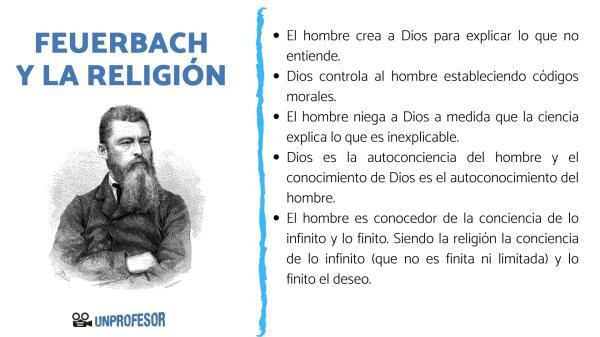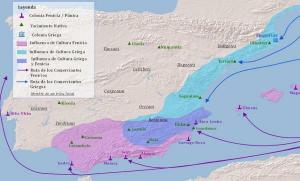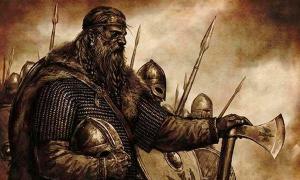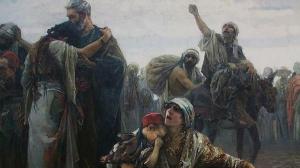Feuerbach and religion

In this philosophy lesson we will explain the concept of religion that the German philosopher of Ludwig Feuerbach (1804-1872). Considered father of atheist humanism current and one of the most important anthropologists of religion in history.
Feuerbach believes that God does not exist, which is a projection of the individual himself, a human invention with the aim of substantiating the fears and concerns that individuals have. Furthermore, he claims that immortality does not exist and that as science advances, the idea of God disappears, since, through science, we are able to explain what was previously explained with religion.
If you want to know more about the Feuerbach's theory of religion, keep reading this article by a PROFESOR Let's start!
Ludwig Feuerbach stands out for its theory of religion and for being one of the most important thinkers in the contemporary world, laying the foundation for the future atheism and influencing the thought of philosophers such as Engels, Marx, Stirner or Bakunin.
In this way, his concept of religion is collected in his culminating work, The essence of Christianity (1841). Where he wonders what religion is and God's relationship with the human being.
Thus, our protagonist starts from the idea that the mystery of religion is that God does not exist and that he is a projection of the subject or of oneself:
"...Man projects his own being outside of himself and then makes it the object of this being metamorphosed into a subject, into a person...". Namely, religion and God are but one human inventionwith the aim of explaining what is iunexplainable and that it is used to legitimize our fears, concerns and ignorance.
On the other hand, he also claims that man first he invented God to later deny him, that all the “perfect” ideals of man himself were projected on him and that the more the figure of God is magnified, the more impoverishes the individual. As Feuerbarch would say:
"Man creates religion, it is born from his urgency and then becomes independent, to present himself as the creator of everything that exists."
Likewise, he establishes that God is a figure created to set guidelines for behavior or moral codes that are out of logic and that stand as castrating elements that prevent freedom. That is why religion must be overcome because it is negative for the human being.
Finally, another of the bases of his philosophical thought is the use of the concept of alienation/alienation to explain religion: Man renounces his own being / nature to create a being in which everything that cannot be is projected, that is, man alienates himself in God. So God is a product created that ends up dominating its creator or producer (man): “It is not God who creates man, but man creates God."
Another of the key ideas of our protagonist's theory of religion is his concept of the human being and his essence. Thus, we start from the idea that for Feuerbach the man who suffers is the one who has created to God to ease their pain, misery and suffering (God is the echo of our cry of pain). It is what is called Homo homini deus est= Man is God for man.
He also establishes that what differentiates the human being from the rest of the species is that the first has the ability to create a religion and that the main characteristic of man is his awareness. Understood as a feeling of oneself (of your own existence), as a faculty of distinguishing what is sensible/moral (what is wrong and what is right) and of being aware of the conscience of what infinite=religion.
Ultimately, human beings are man is aware of the infinity of his own essence and builds it through reason, will and heart, since, man exists to know, love and love. That would be for Feuerbach the divine trinity of man and the true being/essence of it.
“The perfect man must possess the faculty of thought, the faculty of will, and the faculty of heart. The faculty of thought is the light of knowledge, the faculty of the will is the energy of character, and the faculty of the heart is love. Reason, love and will are perfections, they are supreme faculties. The divine trinity of man.

Finally, in a PROFESOR we explain the Feuerbach dialectic. which, part of theHegel (Thesis-Antithesis-Synthesis) and uses it to explain the God-human relationship through the following premises:
Establishing the following ideas:
- Man creates God to explain what he doesn't understand.
- God controls man establishing moral codes.
- Man denies God as science explains the unexplained.
- God is the self-awareness of man and the knowledge of God is the self-awareness of man.
- Man is cognizant of consciousness the infinite and the finite. Religion being the consciousness of the infinite (which is neither finite nor limited) and the finite desire.




